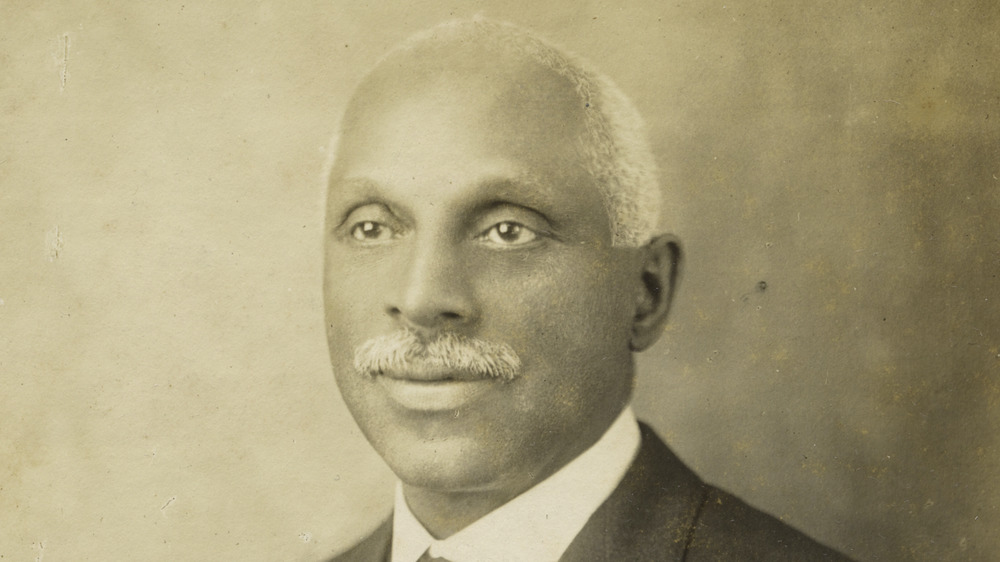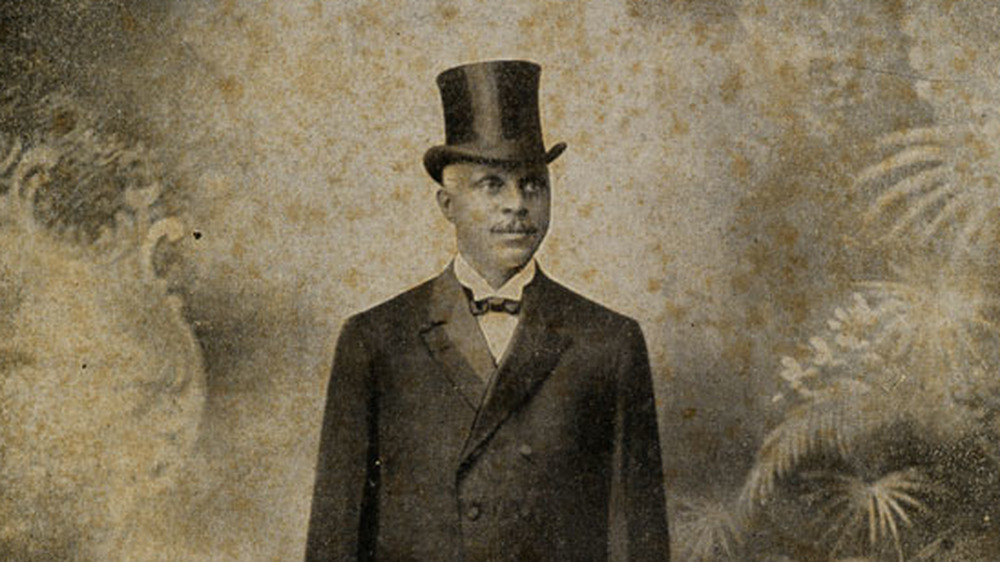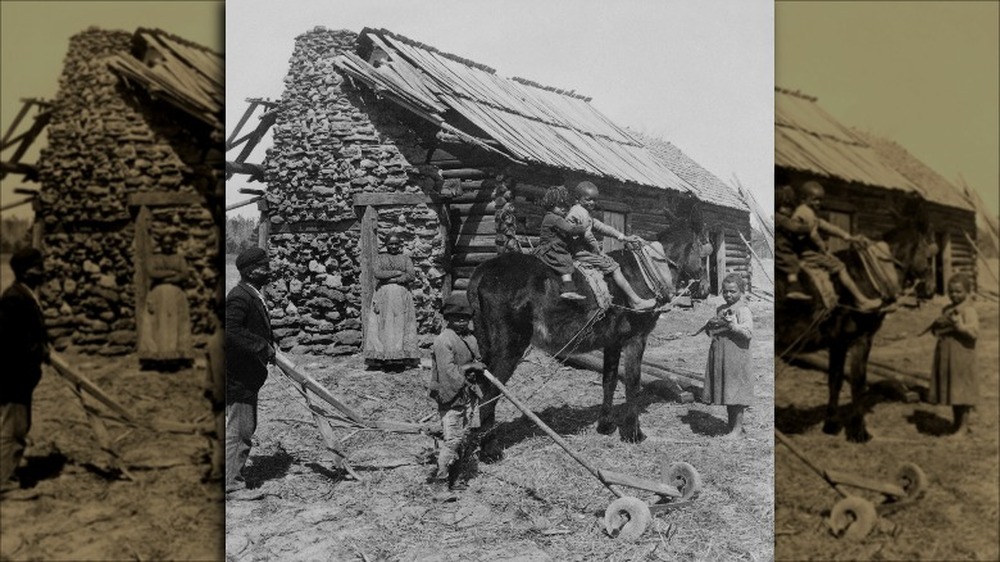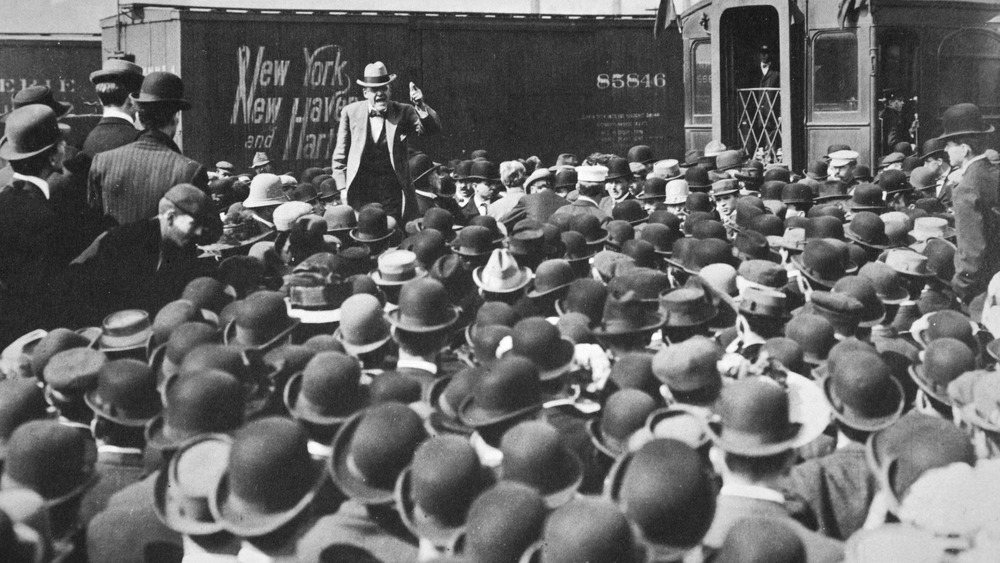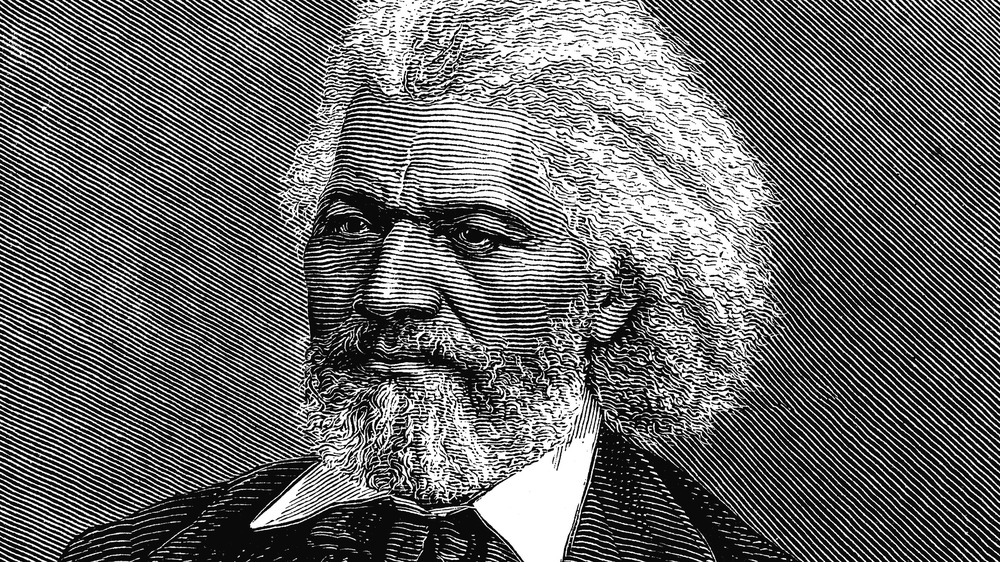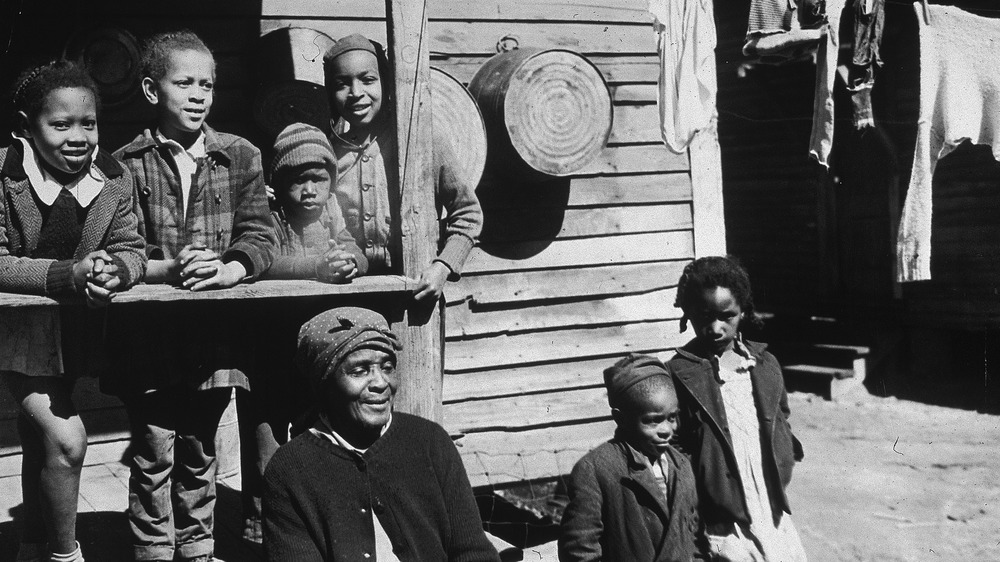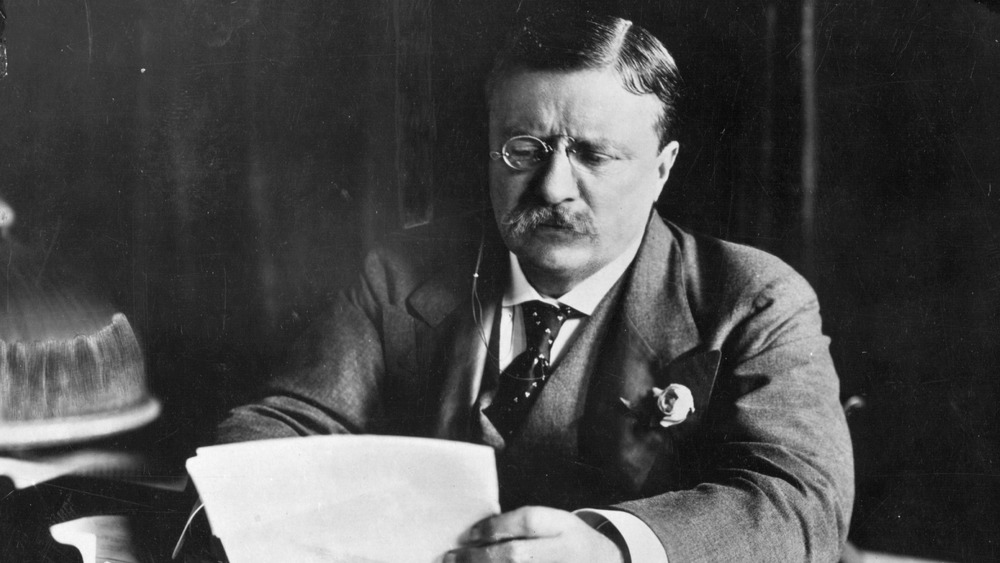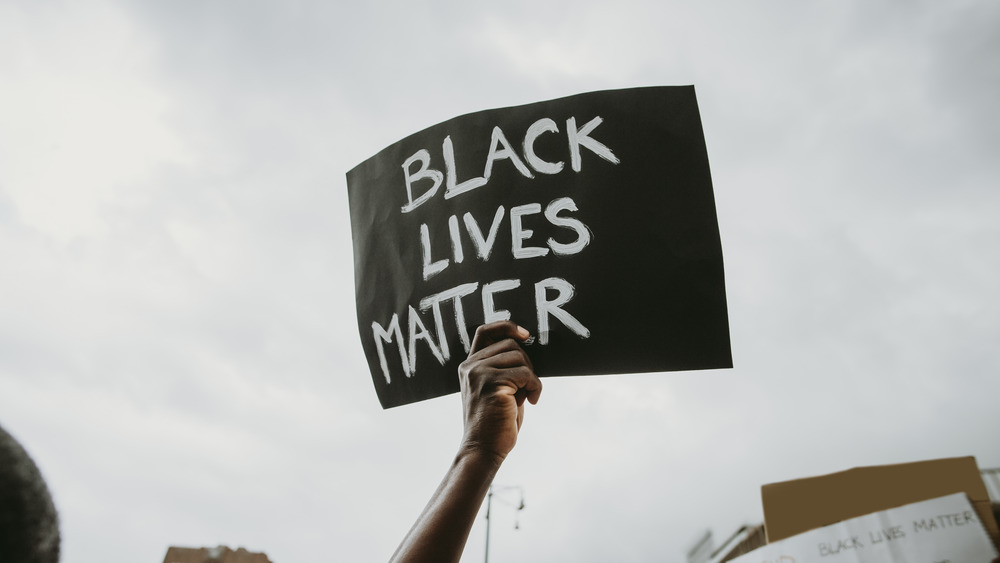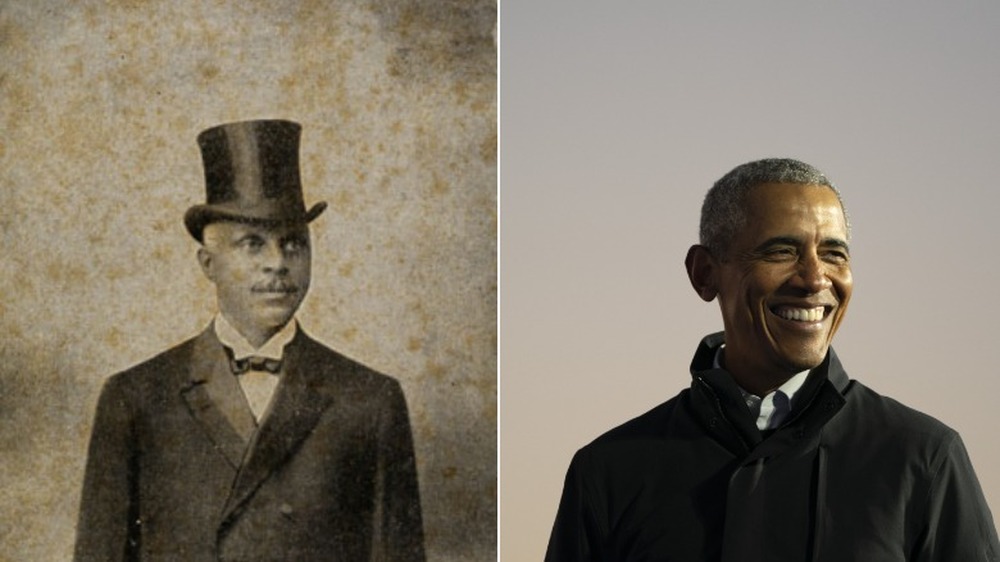The First Black Presidential Candidate No One Remembers
The past decade or so has seen a number of American political firsts — the first Black president, the first female presidential candidate from one of the two major parties, and now the first woman of color elected as vice president, Kamala Harris.
But many, many people paved the way for these historic firsts to happen — and too many of them have been forgotten by history.
Well before Black Lives Matter or even the civil rights movement of the 1960s, Black activists were making waves in American politics, working any angle they could to bring African American issues to the public consciousness and improve the lives of all Americans, no matter their ethnicity or origin. One groundbreaking activist, journalist, and politician working for equal rights for all at the turn of the 20th century was George Edwin Taylor.
So who was this flamboyant, fiery activist and why don't we all learn about him in history class today?
Who was George Edwin Taylor?
George Edwin Taylor was the first African American to run for president as the candidate of a national political party. Yes, there had been Black presidential candidates before his historic run, but they tended to be from regional parties or independent candidates. Where Taylor was unique was in his fronting of a pretty well-known party, back in the days when there were more options than just Democrat or Republican available to voters. As the nominee for the National Liberty Party, also known as the National Negro Liberty Party, as History.com notes, Taylor ran against Teddy Roosevelt in the 1904 presidential election.
The National Liberty Party was founded by ardent abolitionists in 1840 to bring attention to the issues facing current and former slaves, as an article by Howard H. Bell notes. For the most part, they didn't expect their candidates to get any major slice of the vote — they just wanted a platform to bring Black rights in front of the nation. Taylor, a gifted orator and a very active labor rights activist, made the perfect frontman to go up against the immensely charismatic Roosevelt.
George Edwin Taylor had an unusual early life
The son of a slave and a free woman of color, George Edwin Taylor was born in Little Rock, Arkansas, in 1857. Unusually for a Black man of the era, we actually know a good deal about his youth — even his exact birthdate, August 4, as BlackPast records. That's partially because Taylor moved north at a young age and got a remarkably good education.
Moving north wasn't exactly a choice — his mother, Amanda Hines, was forced to leave Arkansas by a law requiring all free Blacks to vacate or else face re-enslavement, according to the University of Wisconsin La Crosse's Murphy Library. Hines died in Illinois when Taylor was just four or five, leaving the little boy to fend for himself, "sleeping in dry goods boxes," as the library's biography recounts. Bruce S. Mouser details in his book on Taylor, For Labor, Race, and Liberty, how the boy managed to get from Illinois to Wisconsin on a paddleboat in 1865 and eventually was taken in by a politically active Black farming family. He worked hard, saved up, and eventually went to Wayland University in Beaver Dam, Wisconsin from 1877 to 1879, as BlackPast notes. Unfortunately, his meager finances didn't allow him to complete his formal education — NPR relates that he was forced to drop out just a year short of graduation.
George Edwin Taylor became a prominent journalist
Even though he never graduated, George Edwin Taylor had managed to do what few Blacks of the time, free or otherwise, were able to: he had an independent life and a solid education, as well as the support of a strong personal network.
Perceptive and shrewd, Taylor had no intention of wasting his talents or advantages. He quickly put his classical education to use as a writer, starting out reporting for various newspapers and eventually owning his own national magazine, as Fox4 Beaumont relates. The Encyclopedia of Arkansas details his journey through journalism, starting in 1879 as a cub reporter in La Crosse, Wisconsin. From there, he became a newspaper editor and eventually the owner of the Wisconsin Labor Advocate, blossoming into both an excellent journalist and an agitator for social and economic change among the working classes. By the time Taylor moved to Oskaloosa, Iowa, in 1891, as noted in an article by Victoria Harrison in American Nineteenth-Century History, he had established himself as both a writer to reckon with and a fierce political force.
Politics drew George Edwin Taylor at a young age
Relatively early in his life, George Edwin Taylor took an interest in politics — perhaps remembering the unfair laws that forced his mother to flee Arkansas with him as a child. He was actually more interested in labor policy and workers' rights than racial politics, becoming extremely active in various Midwestern labor unions and organizations at the turn of the century. According to BlackPast, his first political office was as a representative for the Wisconsin Union Labor Party, where he and his mostly white colleagues agitated for improvements to the lives of the working classes.
He used his skills as a journalist to bring life to the issues that mattered to him, mostly fairer pay and working standards. As the University of Wisconsin's Murphy Library notes, Taylor's Wisconsin Labor Advocate was the official party newspaper for the Wisconsin Labor Party from 1886-1887 — quite an achievement for a free Black man. But disagreements among party members and his marginalization as a Black man surrounded by influential whites started pushing him to pay more attention to the specific issues confronting African Americans of the time, as historian Bruce Mouser points out.
By the time Taylor relocated to Iowa, he was fully immersed in Black politics and activism, starting the Negro Solicitor magazine and standing as a delegate to several national conventions focused on Black issues, as historian Victoria Harrison recounts.
George Edwin Taylor switched parties several times
Though incredibly active in politics for most of his life, George Edwin Taylor wasn't loyal to a party — he was loyal to his cause, and whoever could best move it forward. Like many free Blacks of the immediate post-Civil War era, Taylor started as a Republican — the party of Lincoln. In fact, he even served as a delegate-at-large for Iowa to the Republican National Convention in 1892, according to historian Victoria Harrison. However, the work he and other Black delegates including Frederick Douglass (pictured above) did at the convention to advance civil rights was pretty much ignored by the party at large. Disillusioned and frustrated, Taylor returned home to Iowa and promptly switched allegiance to the Democratic Party. BlackPast notes that he led the National Negro Democratic League for several years, agitating for more representation for African Americans in the Democratic Party. Within the party as a whole, he emerged as a leading light of the Populist movement to pay more attention to the everyman — regardless of color — rather than the concerns of the 1%.
When the Democrats, too, turned out to be less than responsive to issues facing Black Americans, Taylor abandoned that party and hooked up with the National Liberty Party, a national third party dedicated specifically to Black rights, as BlackPast recounts.
George Edwin Taylor ran for president to make a point
After being active in state and national politics for years, by the turn of the 20th century, Taylor had started despairing of the decline of Reconstruction and the increasing marginalization of Black issues and rights. When he decided to run for president, it wasn't because he thought he'd win — it was to try to get the spotlight back on Black concerns. In fact, in 1904, as BlackPast recounts, he wrote of African American rights: "We are doomed."
He had good reason to despair. As the Encyclopedia of Arkansas notes, segregation was taking hold, the Jim Crow laws were repressing freed African Americans throughout the South, and the rights former slaves had won were quickly evaporating in the face of retrenching American politics. Despite all the glitter of the Gilded Age, it seemed like no one gave a crap about the working man, let alone ex-slaves.
So when the National Liberty Party needed a presidential candidate, as Bruce Mouser recounts in his book on Taylor, the fiery journalist was ready to step up. He knew he wouldn't win — and, in fact, because of racist ballot laws, he couldn't even technically run in a bunch of states — but George Edwin Taylor had to make an attempt to bring his issues to the national stage.
George Edwin Taylor campaigned for equal rights for all people
While the National Liberty Party might have been started by abolitionists, it really became George Edwin Taylor's true political home because of its inclusion of everyone in its definition of "equal rights and liberty."
Raised in a mixed-race household and interacting with people of all ethnicities and backgrounds for so much of his life, Taylor really was an equal-opportunity freedom fighter. His presidential platform focused on exactly that: equal rights.
As BlackPast highlights, his campaign had an unerring focus on a universal right to vote, federal protection of equal rights, national anti-lynching laws, equal representation in the military, and federal pensions for all former slaves. Beyond that, though, he campaigned for residents of Washington, DC, to have full voting powers and representation and called for freedom for Puerto Ricans and Filipinos as well, as the Encyclopedia of Arkansas points out. These are incredibly progressive issues today, let alone in 1904, and while Taylor's flamboyant style and fierce orations made him a lot of enemies, as historian Victoria Harrison relates, they also brought his pursuit of equal rights for all to a broader audience than ever before.
George Edwin Taylor returned to journalism for the rest of his life
No matter how fiery, flamboyant, and gifted George Edwin Taylor was, he knew there was no hope for his campaign to be treated as anything other than a sideshow to the almost inevitable election of Teddy Roosevelt (pictured above) in 1904. As BlackEnterprise relates, he gave a newspaper interview where he stated "Yes, I know most white folks take me as a joke ... but I want to tell you the colored man is beginning to see a lot of things that the white folks do not give him credit for seeing. He's beginning to see that he has got to take care of his own interests, and what's more, that he has the power to do it."
Taylor received only about 2,000 votes in the national election, per NPR, but he did succeed in his aim of highlighting the vast populations within the US who were being consigned to second-class citizenship by the ruling parties. With that goal accomplished, George Edwin Taylor retired from politics and moved to Jacksonville, Florida, where he resumed his career as a journalist. According to Fox4 Beaumont, he wrote for the Florida Sentinel in addition to other local and national newspapers, and according to BlackEnterprise, managed the Promotion Publication Co. until his death in 1925.
George Edwin Taylor left a remarkable legacy
For a supposedly "failed" presidential candidate, George Edwin Taylor left a strong legacy. Though few remembered his losing candidacy, his work as a labor rights promoter and Black rights advocate paved the way for myriad improvements to the lives of Blacks all over the US.
As NPR points out, prior to the Civil War, Blacks could only vote in five New England states and New York, and even after the Emancipation Proclamation, Americans of different backgrounds were far from equal. While Taylor had seen himself as equal to any man during his time as a labor rights activist in Wisconsin, others sidelined him and attempted to shove him out of leadership positions, as biographer Bruce Mouser recounts. Taylor's lifelong conviction that no one's economic status, ethnic background, or place of residence should determine what they were able to do with their lives was truly progressive, and his vehement pursuit of equal rights for all paved the way for later activists and politicians to push through the Equal Rights Amendment and more.
NPR notes that Taylor's fierce independence, lack of party loyalty, and relative obscurity on the national scene likely made him the perfect first Black presidential candidate — he could mouth off on the national stage without the focus going to who he was as a person, rather than remaining on the issues at stake.
George Edwin Taylor paved the way for Black politicians to come
By standing for office and putting Black issues front and center, George Edwin Taylor paved the way for later African American politicians like Shirley Chisholm and Barack Obama to make their groundbreaking moves. In fact, as his biographer relates in an article on HistoryNewsNetwork, Taylor shares a number of coincidental attributes with our first Black president, including sharing a birthday (August 4) and running for president at the same age (47).
Given his impassioned speeches, polished appearance, brilliant writing, and lifelong activism, it's shocking that more people don't remember the life and work of George Edwin Taylor. But even if he doesn't have the fame he rightly deserves, he still broke down barriers for Blacks in politics, making today's activist culture possible. Taylor lived and breathed the ideas of Black liberation and asserted that once Black lives and issues were taken seriously, we could tackle issues of social inequality and equal rights for all, creating the kind of America that we all deserve ... one that values nothing more than life, liberty, and the pursuit of happiness for all.
